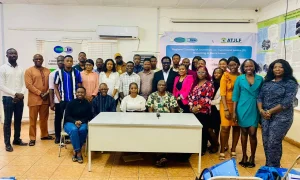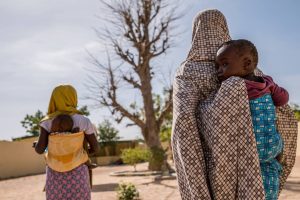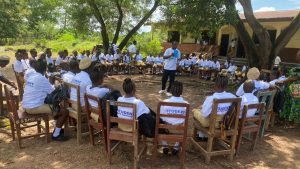Just as houses cannot stand without pillars or other forms of structural support, transitional justice cannot thrive without its pillars. If one is absent or weak, the others are weakened as a result. For a long time, however, attempts have been made to implement transitional justice in Africa without its pillars or with weakened ones. The results have been predictable – collapsing disappointments.
Effective witness protection has been a missing link. The pillars of truth and justice cannot function without a robust witness protection system. Truth-seeking processes and justice mechanisms rely on witness testimony, which helps hold perpetrators of human rights violations to account. In fact, survivors’ testimonies have been referred to as the backbone of transitional justice processes, essential even when other forms of evidence are available. Yet, when witnesses are not protected, they are far less likely to give testimony.
As a whole, Africa grapples with the absence of robust witness protection systems. Many countries in the region have no frameworks that guarantee the protection of witnesses. In the few countries where they exist, there is often a lack of implementation. As of November 2022, there are only two fully operational witness protection agencies in Africa, Kenya’s Victim Protection Board and South Africa’s Office for Witness Protection. Without such frameworks, witnesses and survivors involved in transitional justice processes face threats and attacks from accused persons and their agents.
“The African Union, the regional economic communities, and African states must create and implement robust frameworks for witness protection in order to ensure the success of transitional justice measures on the continent”.
The situation affects national trials as well as international courts that try African cases. As far back as 1996, a total of 99 witnesses were murdered by Hutu extremists in Rwanda because they cooperated with the International Criminal Tribunal for Rwanda. Attacks also occurred during the local Gacaca process. There were reports of poisoning, assault, rape, arson and murder targeting witnesses. With effective witness protection systems, many of these incidents could have been prevented.
And it is not just witnesses who come under attack. Their loved ones are usually targets as well. An example is the post-election violence that followed the 2007 elections in Kenya. The International Criminal Court admitted that family members of witnesses in its case against perpetrators of the violence faced threats.
Threats and attacks will continue without adequate witness protection systems, which will result in dwindling witness confidence in transitional justice processes. For example, in the April 2014 trial of an alleged Boko Haram member in Nigeria, a key witness refused to testify because the judge did not allow the use of facial coverings to conceal his identity.
Women and girls face particular challenges associated with discrimination and stigmatisation. In cases of human rights violations that involve sexual violence, survivors often do not have witness protection during trials. They are left vulnerable, recounting their ordeals in open court without their identities being properly concealed. This exposes them to further threats and harm. Those who are lucky enough not to experience this usually still deal with a lack of psychosocial support.
It is clear that, as a matter of urgency, African countries and regional bodies need to prioritise witness protection in their transitional justice measures. Amnesty International’s checklist for the establishment of a truth commission makes three key recommendations for ensuring proper witness protection: treating victims with dignity and humanity; assisting witnesses in presenting their views, concerns and cases; and establishing effective long-term witness protection programmes. All must be fulfilled if witnesses are to be adequately protected and, by extension, if transitional justice is to be successfully pursued.
Transitional justice in Africa will continue to suffer setbacks without adequate witness protection. The pillars of transitional justice cannot stand without it. The African Union, the regional economic communities and African states must create and implement robust frameworks for witness protection. Future transitional justice processes and the very people who take the greatest risks in the name of justice depend on it.
This article was first published on the African Transitional Justice Hub
Author
-
Emmanuel is the Grants and Programs Officer overseeing ATJLF's grantmaking in Nigeria, Sierra Leone and The Gambia, including ATJLF's strategic partnership with the African Union.
View all posts



